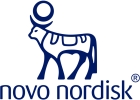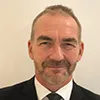

2025 ISPE Facilities of the Future Conference
Thank you to all who made the 2025 ISPE Facilities of the Future Conference such a big success!
Thank you to all who made the 2025 ISPE Facilities of the Future Conference such a big success!
Please Note:
- All full-access registration (virtual & in-person) includes access to speaker presentations, on-demand content, and other conference material.
- NOTE: Material is only available from those speakers/companies that permitted distribution.
- Registrants will receive email notification when the on-demand content is available.
- On-demand content is accessible for 90 days.
Top Industry Thought Leaders Who Presented at the 2025 ISPE Facilities of the Future Conference
The Conference Experience at the 2025 ISPE Facilities of the Future Conference

Conference Welcome

General Session Assemble

General Session Attendees

International Program Committee
Featured Speakers
SVP Head of Global Engineering
Takeda Pharmaceuticals International AG
Vice President, Global Engineering and Technology
Johnson & Johnson Innovative Medicines
Senior Vice President – Corporate Operations and Chief Sustainability Officer
Gilead Sciences, Inc.
Vice President of Quality
Kindeva Drug Delivery
President & CEO
16 Tech
EVP, Chief Technology Officer, and Head of Research & Development
ConvaTec
Vice President, Site Head | Indianapolis
RayzeBio A Bristol Myers Squibb Company
Sr. Vice President, Device & Packaging Operations Manufacturing
Eli Lilly and Company
Executive Forum Panelists
Vice President, SSF Manufacturing Site Head
Genentech
Senior Director, Global Engineering & Technology
Johnson & Johnson
Senior Vice President, Global Engineering
Amgen
Vice President Site Engineering
Bayer
Technical Director
No Deviation Pte Ltd
Your Conference Experience

Expo Hall
Expo Hall
Explore groundbreaking innovations and network with industry leaders at our dynamic expo hall.

Networking
Networking
Connect with top industry experts and expand your professional network at our exclusive networking sessions.

Live Streams
Live Streams
Experience the conference from anywhere with our interactive live stream.

On-Demand Content
On-Demand Content
Access exclusive conference content anytime with our on-demand library for 90 days.
Conference Highlights

Facilities Design and Delivery at the 2025 ISPE Facilities of the Future Conference
As the pharmaceutical industry continues to evolve at an unprecedented rate, the design and delivery of manufacturing facilities must keep pace with the associated changing requirements. The drivers for change are also diverse both with internal and external factors being relevant. For facility design this means a more focused risk-based approach is followed. The result is facilities which meet new levels of flexibility and agility while incorporating multi-modalities and new technologies, particularly associated with Pharma 4.0™.

Message From the Chair: Why Attend the 2025 ISPE Facilities of the Future Conference
The 2025 Facilities of the Future Conference will explore innovations in facility design and delivery, emerging trends in technologies, manufacturing, and support areas such as laboratories and warehousing. Also included are the ways technology and digital transformation will impact the workforce of the future, and sustainability efforts in both new and legacy pharmaceutical facilities.

“Technology, Digital Transformation, and Pharma 4.0™” track for 2025 ISPE Facilities of the Future Conference
In the “Technology, Digital Transformation, and Pharma 4.0™” track at the upcoming 2025 ISPE Facilities of the Future Conference, audiences will have the opportunity to learn how cross-industry innovation to streamline process and improve efficiency. They will learn about multiple ways to mitigate risks through self-learning software options and/or data-driven decision-making practices.
International Program Committee
Chair
President and CEO
ISPE
International Board Liaison
Executive Chairman of the Board
CRB
Vice President, Global Engineering and Technology
Johnson & Johnson Innovative Medicines
Chapter Liaison
Owner
Biotone Consulting
Women in Pharma Liaison
Vice President - Cockram USA
Cockram Construction Inc
Vice President of Global Engineering
Catalent Pharma Solutions
Global Head of Operational Excellence, Biologics Network
Takeda
Sr. Director- Strategic Talent Partnerships
Eli Lilly and Company
Technical Director, Group Head of Technology
PM Group
Director of Sales and Business Development
GMP Systems Inc
Senior Director of Business Development
Dome Construction
Emerging Leader
Sr. Engineer - API, Lebanon Plant 1 (LP1)
Eli Lilly & Company





























